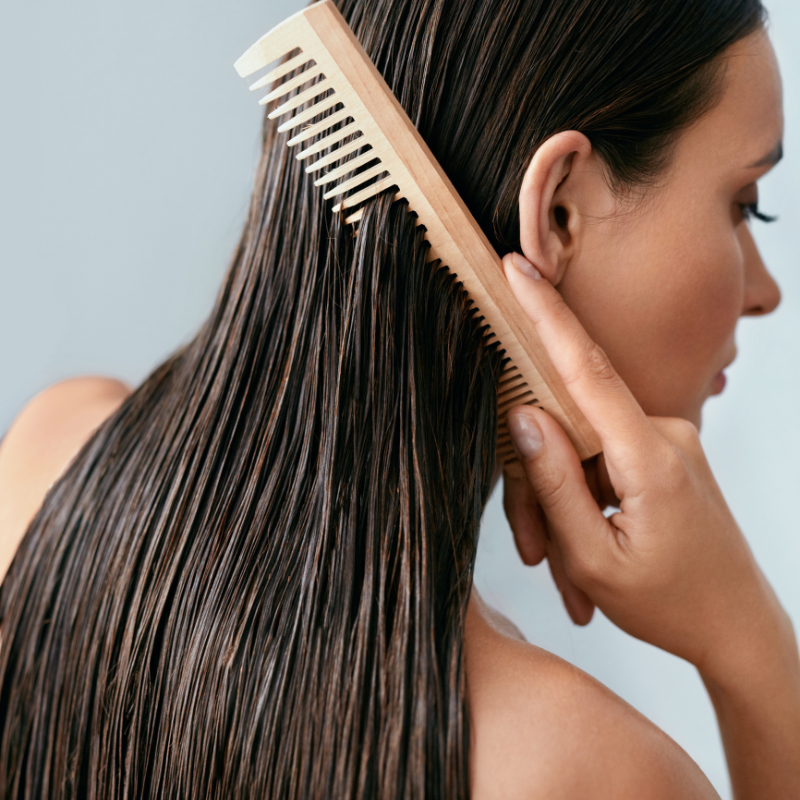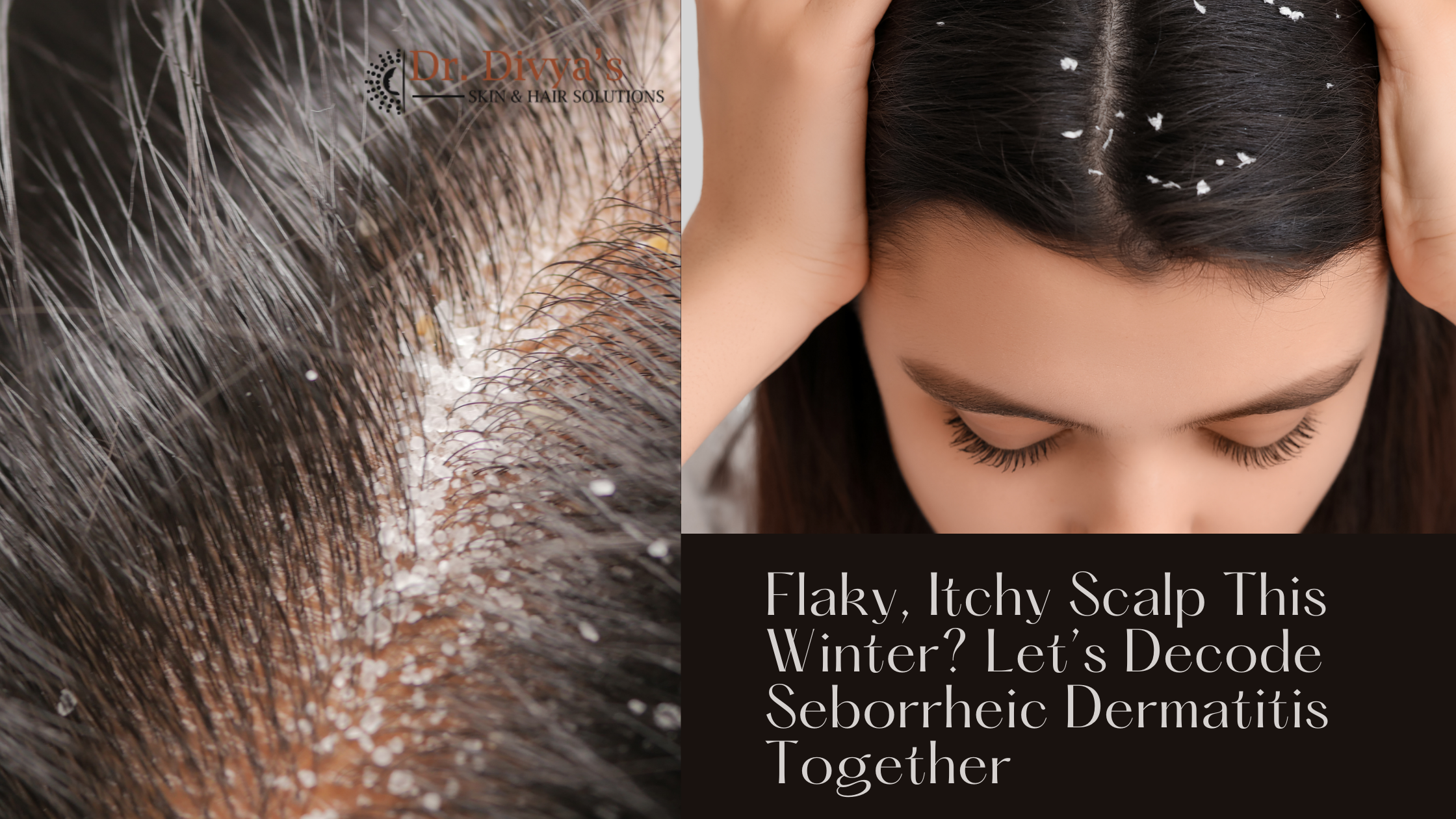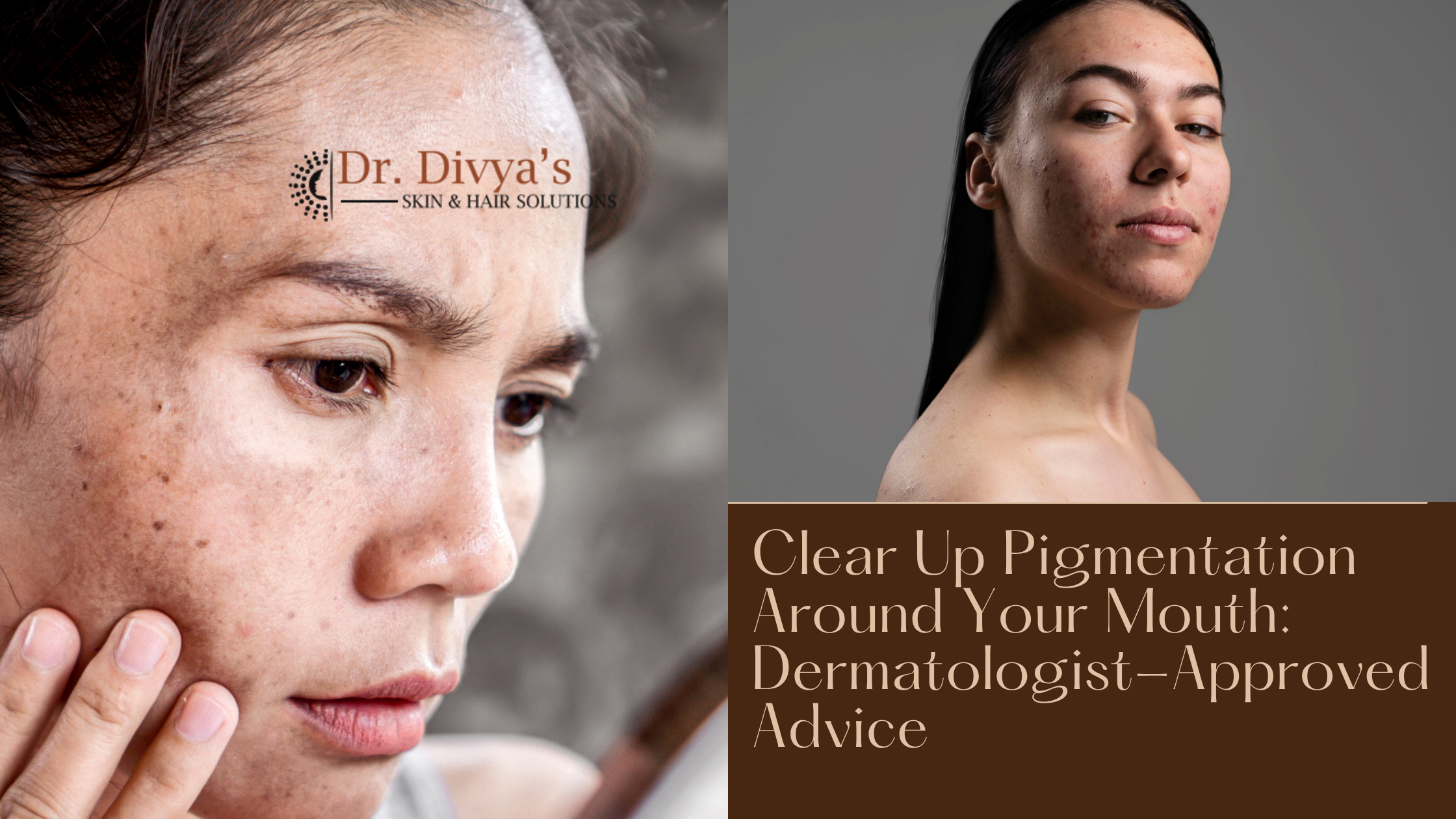Posted date on Dec 15, 2023
Winter is here, and with it comes a delightful combination of cosy sweaters, hot cocoa, and a breeze of cold, goosebumps-giving air. While we all enjoy the winter season for its unique charm, it can be a challenging time for our hair. The cold and dry weather can wreak havoc on our tresses, leaving them dry, brittle, and prone to damage. In this blog, we're going to explore the fascinating relationship between your winter diet and the health of your hair while you maintain luscious locks all season long.
Understanding the Winter Hair Woes
Before we dive into the impact of your diet, let's take a closer look at what happens to your hair during the winter months. The cold, dry air outside, combined with the warm, dry air indoors, can lead to several hair-related issues, including:
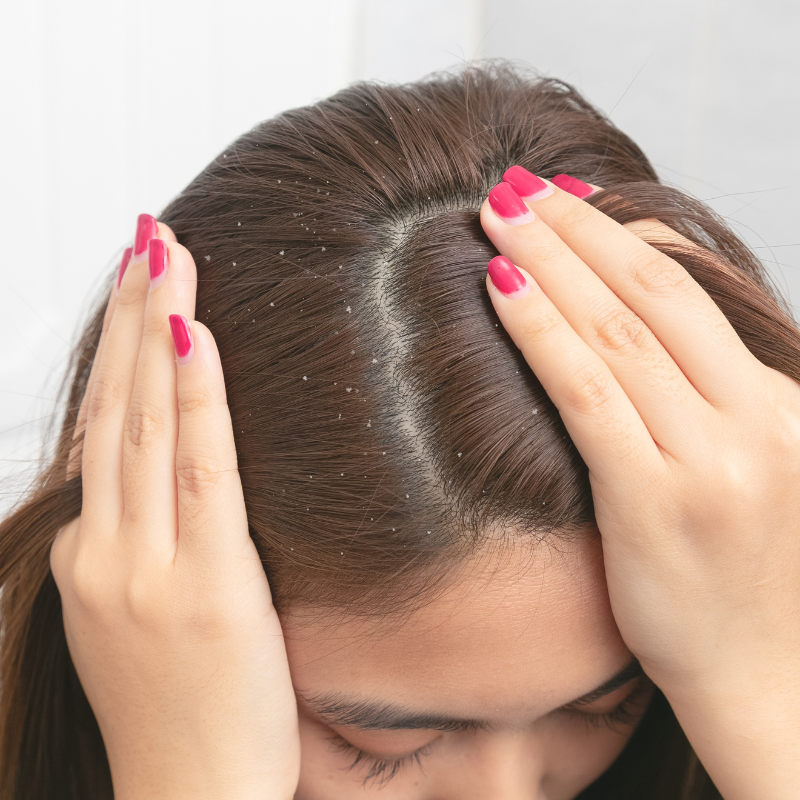
-
Dryness: The lack of humidity in the air can leave your hair parched and in need of extra moisture.
-
Frizz: Static electricity is a common culprit in the winter, causing frizz and flyaways.
-
Breakage: Brittle hair is more prone to breakage, especially when exposed to harsh winter winds.
-
Dandruff: The dry scalp can become flaky and itchy, leading to dandruff.
The Role of Diet in Winter Hair Health
Your diet plays a crucial role in maintaining the health and appearance of your hair during the winter season. Nutrient-rich foods can provide your hair with the essential vitamins and minerals it needs to stay strong and beautiful. Let's explore the key nutrients and foods that you should include in your winter diet:
Protein: Your hair is primarily composed of a protein called keratin. To maintain healthy hair, it's essential to ensure you're consuming an adequate amount of protein.
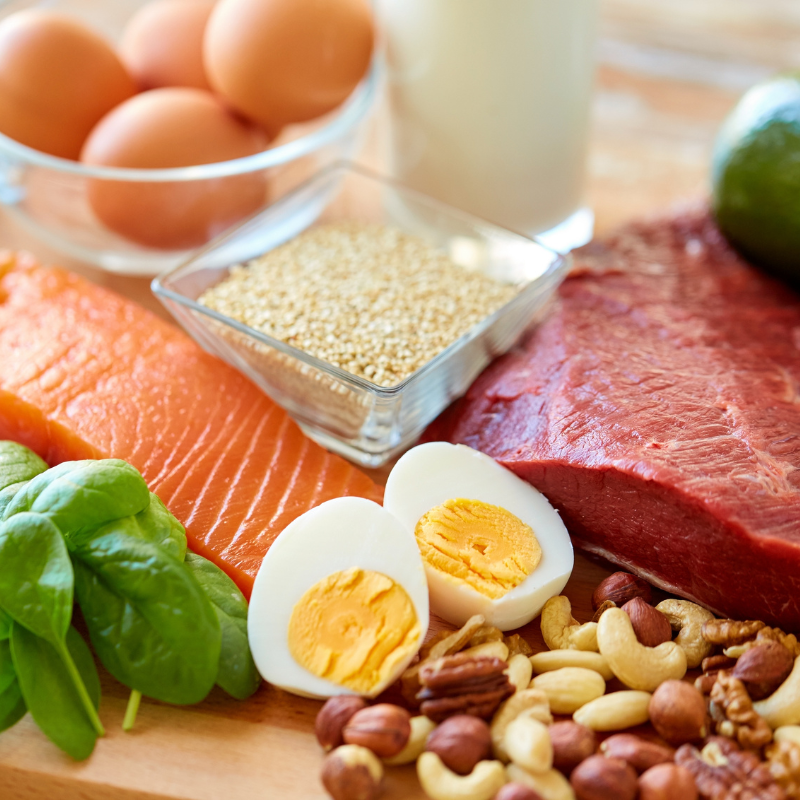
Sources like lean meats, eggs, fish, and plant-based options like beans and lentils are packed with protein. Including these in your diet provides your hair with the building blocks it needs to stay strong and vibrant.
Omega-3 Fatty Acids: Omega-3 fatty acids, commonly found in fish, flaxseeds, and walnuts, play a crucial role in maintaining scalp health and preventing dryness.
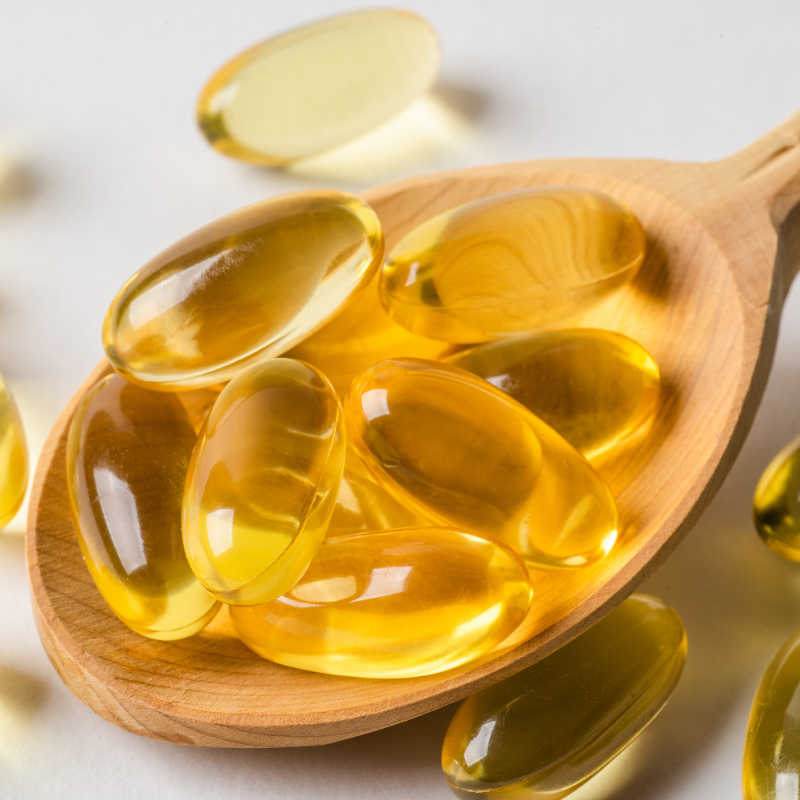
These healthy fats contribute to the overall moisture balance of your hair and help in reducing the risk of dry, brittle hair during the winter months.
Vitamin C: Vitamin C is well-known for its role in boosting the body's collagen production. Collagen is an essential component for hair strength and elasticity.

Oranges, strawberries, and kiwi are rich sources of vitamin C, making them great choices to incorporate into your diet for robust and beautiful hair.
Vitamin E: Vitamin E is known to improve blood circulation to the scalp.
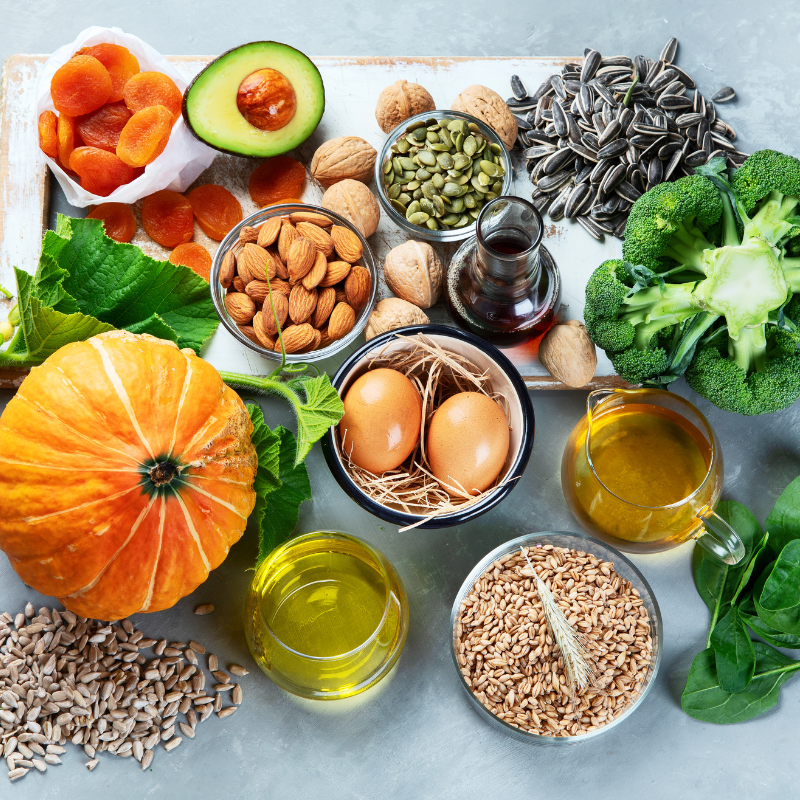
This enhanced blood flow aids in the delivery of oxygen and essential nutrients to your hair follicles, promoting healthier hair growth. Nuts, seeds, and spinach are rich in vitamin E, making them valuable additions to your winter diet.
Biotin: Biotin, also known as vitamin H, is a B-vitamin that is essential for hair health. It promotes hair strength, reduces breakage, and supports overall hair quality.
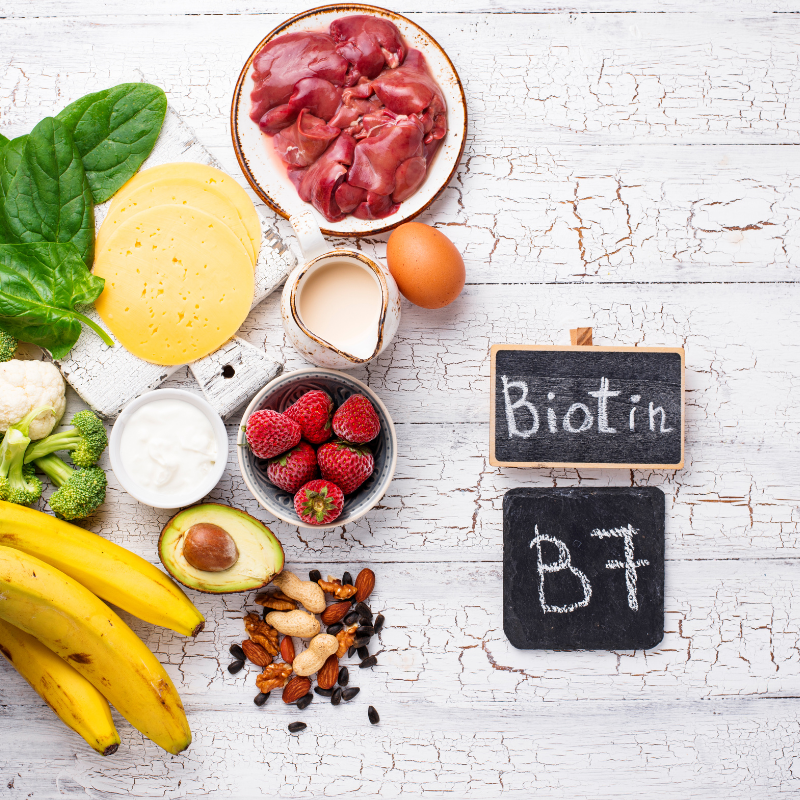
You can find biotin in foods like eggs, sweet potatoes, and almonds, which are delicious and nutritious choices for strong, beautiful hair.
Iron: Iron is critical for preventing hair loss caused by anaemia. Anaemia, often characterised by a lack of red blood cells, can lead to hair loss. To ensure you're getting enough iron, incorporate iron-rich foods such as leafy greens, beans, and fortified cereals into your diet.
Zinc: Zinc plays a pivotal role in maintaining a healthy scalp and promoting hair growth. Oysters, nuts, and whole grains are excellent sources of zinc. Including these foods can help you maintain a balanced scalp environment, crucial for nurturing your hair's growth and vitality.
By prioritising these nutrients and foods in your winter diet, you can effectively fortify your hair against the harsh elements of the season and enjoy healthy, vibrant locks throughout the colder months. If you're experiencing any serious hair-related issues, such as persistent hair loss, severe dandruff, or unusual scalp conditions, don't hesitate to consult a dermatologist.

Remember, a visit to your dermatologist can be the key to resolving complex hair issues and ensuring your confidence shines through, no matter the season. Drinking an adequate amount of water can help combat dryness, both for your skin and hair. As the temperature drops, it's essential to be mindful of what you eat and how it impacts your hair health. A diet rich in the right nutrients, combined with these tips can help you maintain luscious locks throughout the winter season. So, take care of your hair from the inside out, and embrace the winter with confidence and beautiful, healthy hair.
